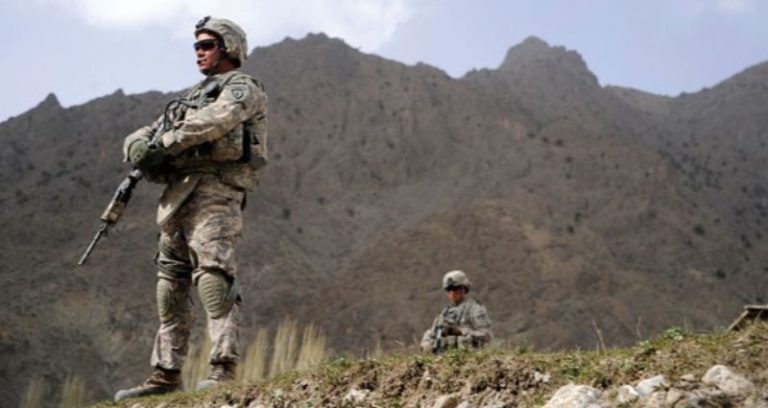Common VA Disabilities For Post-9/11 (OEF & OIF) Veterans

CCK Law: Our Vital Role in Veterans Law
Operations Enduring Freedom (OEF) and Iraqi Freedom (OIF) are classified under the umbrella term “Global War on Terror.” This international military campaign was launched following the September 11, 2001 terrorist attacks against the United States. Since the beginning of the wars in Afghanistan and Iraq, over 1.9 million United States military personnel have been deployed in the conflict. OIF took place in Iraq from March 2003 to August 2010, while OEF began in October 2001 and continues to the present day in Afghanistan. Both Iraq and Afghanistan War veterans who served in OIF and OEF may have been exposed to environmental and chemical hazards during their service that have resulted in long-term injuries and illnesses.
Exposures in OEF and OIF Veterans
Particulate Matter
Particulate matter is a mixture of small particles and liquid droplets made up of a number of compounds, including acids (such as nitrates and sulfates), organic chemicals, metals, and soil/dust particles. Two sizes of particles pose a health concern – those with a diameter of 10 microns (PM10) or smaller and those with a diameter of 2.5 microns (PM2.5) and smaller – as they generally pass through the nose and throat and enter the lungs. OEF and OIF veterans were also exposed to pollution, dust, sand, and other airborne particles because of the environment in Iraq and Afghanistan. The ingestion of this matter can contribute to respiratory conditions as well as irritation to the skin, eyes, nose, and throat.
Depleted Uranium
The military used depleted uranium in Iraq and Afghanistan for both offensive and defensive purposes. For example, tanks had a layer of depleted uranium armor to increase protection and it was also used in ammunition rounds. The primary forms of exposure occur through ingestion or inhalation, and the amount of depleted uranium retained in the body depends on the amount of exposure. Exposure to depleted uranium could potentially lead to long-term health effects, including various cancers (e.g. lung, kidney).
Traumatic Brain Injury (TBI)
An estimated 10 to 20 percent of OEF and OIF Army and Marine Corps servicemembers have sustained mild traumatic brain injury (TBI) that has been associated with various long-term health outcomes. According to a 2009 study of 303,905 soldiers and Marines, 19.1 percent of troops returning from Iraq and 11.3 percent of those returning from Afghanistan reported mental health problems compared with 8.5 percent of those returning from deployments elsewhere. TBI are likely more common amongst OEF and OIF veterans because of their close proximity to explosions during the wars caused by improvised explosive devices (IED). Immediate symptoms of TBI can include confusion, temporary memory loss, dizziness, and loss of consciousness while long-term symptoms can involve chronic headaches and neck pain, chronic fatigue, light and noise sensitivity, blurred, vision, depression, etc. In relation to this, another troubling consequence of OEF and OIF deployment is the increase in the number of suicides reported in soldiers serving in Iraq and Afghanistan since the start of the conflicts.
Infectious Diseases
OEF and OIF veterans were potentially exposed to various infectious diseases while serving on active duty, including, but not limited to, the following:
- Malaria – an infectious disease with symptoms that include persistent fevers, sweats, and chills
- Coxiella Burnetii (Q Fever) – a bacterial disease with symptoms that include nausea, diarrhea, fevers, and severe headaches. Heart inflammation may occur in chronic cases.
- Brucellosis – a bacterial disease in which symptoms manifest as chronic profuse sweating and joint and muscle pain
- Mycobacterium tuberculosis – a bacterial lung disease in which symptoms appear in the form of fevers, weight loss, persistent and sometimes bloody coughing, and chest pain
- West Nile virus – a mosquito-borne virus that includes symptoms of headache, fevers, nausea, vomiting, and muscle pain or weakness
Mishraq State Sulfur Mine Fires (OIF Only)
In June of 2003, a fire ignited at the Mishraq State Sulfur Mine Plant near Mosul in northern Iraq. The fire burned for almost a month, becoming the largest manmade sulfur fire in recorded history. It released roughly 42 million pounds of sulfur dioxide per day, as well as a significant amount of hydrogen sulfide. Field samples of air in the vicinity of the fire detected these toxic gases at levels immediately dangerous to health and life. As such, OIF servicemembers involved with fighting this fire became at risk for negative health-related outcomes.
Hexavalent Chromium
From approximately April through September of 2003, about 830 servicemembers guarded a water treatment facility in the Basrah oil fields at Qarmat Ali, Iraq. Servicemembers included National Guard, Reserve, and active duty soldiers, mainly from Indiana, South Carolina, West Virginia, and Oregon. During that time, sodium dichromate, a source of hexavalent chromium, was found on the ground and in the air. Hexavalent chromium, or Chromium VI, in sodium dichromate is a lung carcinogen. Chromium VI is also an acidic compound that causes immediate irritation to the eyes, nose, sinuses, lungs, and skin. Roughly 137 servicemembers were evaluated once exposure was realized. The results showed abnormalities in individuals, such as complaints of eye, nose, throat, and/or lung irritation, or abnormal pulmonary function, kidney, or liver tests.
Disabilities Linked to Exposures in OEF and OIF
Overall, OEF and OIF veterans may have been exposed to any number of factors indicated above with health effects ranging from skin, nose and eye irritations, to more severe problems such as respiratory diseases, and even death. If you served in the post-9/11 conflicts and
About the Author
Share this Post
